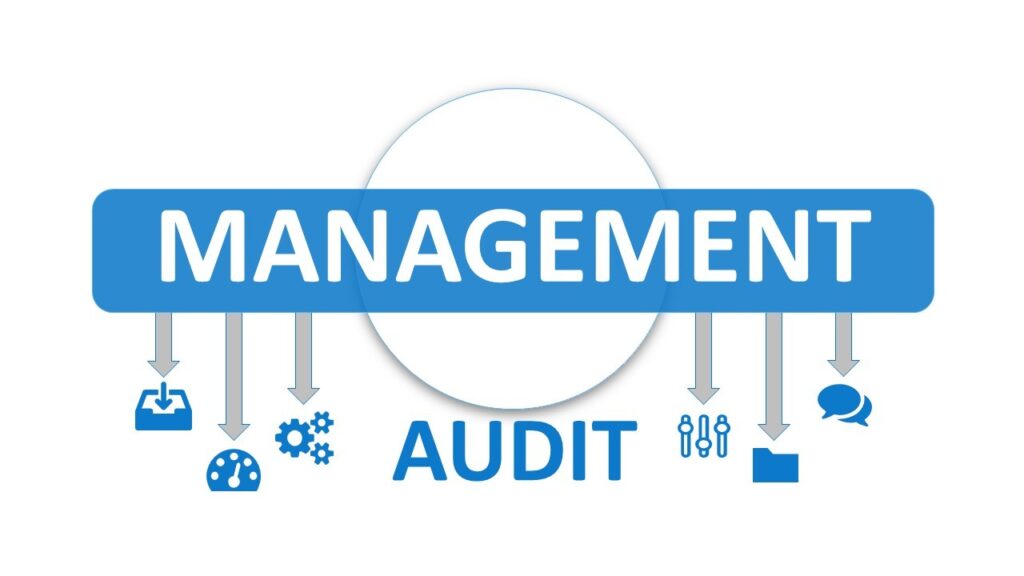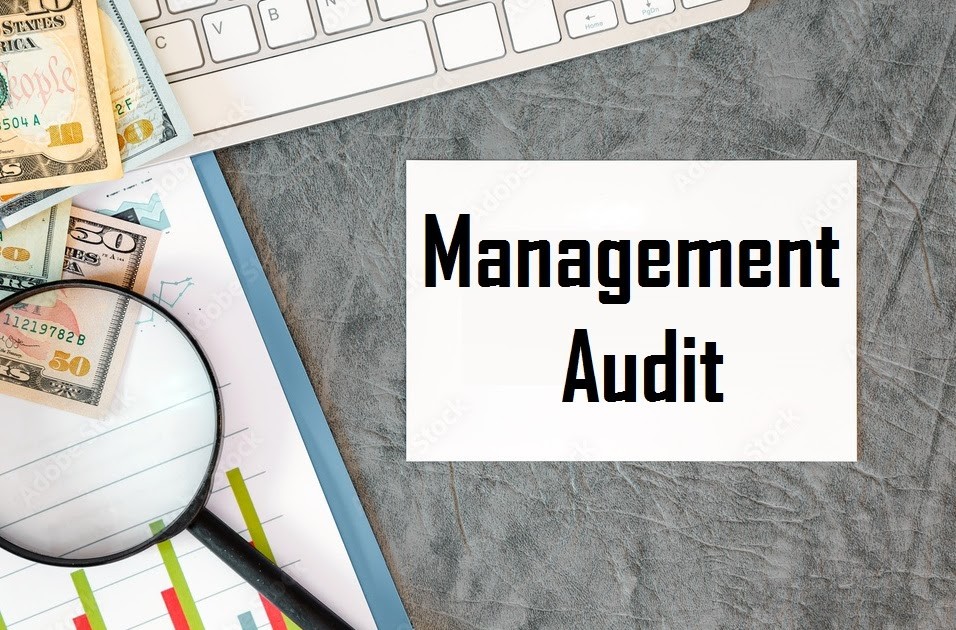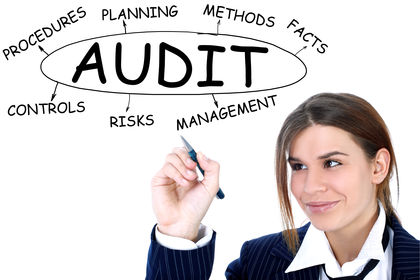Management Audit

Management Audit
Management audit is a systematic assessment of an organization’s management processes, systems, practices, and performance. The objective is to evaluate how effectively and efficiently the organization’s management functions are being carried out and to identify areas for improvement. Management audits are typically conducted by internal or external auditors, management consultants, or specialized firms with expertise in organizational management and governance.
1. Strategic Alignment: Assessing whether the organization’s objectives, goals, and strategies are aligned with its mission, vision, and values. This involves evaluating the formulation, communication, and execution of strategic plans to ensure they support the organization’s long-term success.
2. Organizational Structure and Governance: Reviewing the organizational structure, roles, responsibilities, and reporting relationships to determine if they are optimized for efficiency, accountability, and decision-making. This includes assessing the effectiveness of governance mechanisms, such as board oversight, management committees, and policies and procedures.
3. Leadership and Management Practices: Evaluating the leadership qualities and management practices of key executives and managers. This involves assessing their ability to inspire and motivate employees, foster a culture of innovation and collaboration, and make informed decisions to achieve organizational objectives.


4. Operational Efficiency and Effectiveness: Analyzing the efficiency and effectiveness of operational processes and workflows. This includes evaluating resource allocation, workflow optimization, performance metrics, and the use of technology to streamline operations and enhance productivity.
5. Financial Management and Performance: Reviewing financial management practices, including budgeting, financial reporting, cash flow management, and risk management. This involves assessing financial performance metrics, profitability, liquidity, and solvency to ensure sound financial health and compliance with accounting standards.
6. Human Resources Management: Assessing human resources practices, including recruitment, training, performance management, compensation, and employee engagement. This includes evaluating policies and procedures related to diversity, equity, inclusion, and employee well-being
7. Risk Management and Compliance: Identifying and evaluating risks associated with the organization’s operations, strategies, and external environment. This involves assessing the effectiveness of risk identification, assessment, mitigation, and monitoring processes, as well as compliance with relevant laws, regulations, and industry standards.
8. Information Technology (IT) Management: Reviewing IT governance, infrastructure, systems, and cybersecurity practices to ensure they support the organization’s objectives and protect against cyber threats. This includes assessing IT strategy, data management, system reliability, and IT controls.
9. Performance Measurement and Continuous Improvement: Establishing performance metrics and benchmarks to measure progress towards organizational objectives. This involves developing key performance indicators (KPIs), monitoring performance against targets, and implementing continuous improvement initiatives based on audit findings and best practices

Overall, the primary objective of a management audit is to provide valuable insights and recommendations to help organizations optimize their management processes, improve performance, mitigate risks, and achieve their strategic objectives. Management audits contribute to organizational transparency, accountability, and sustainability by promoting good governance practices and driving continuous improvement across all levels of the organization.

Why Us?
Management audit services provided by Chartered Accountants typically involve evaluating various aspects of a company’s management processes, systems, and practices to ensure efficiency, effectiveness, and compliance with regulations. Here’s a breakdown of what such services may entail:
1. Strategic Planning Review: We assess the company’s strategic plans and objectives to ensure they are aligned with the organization’s mission and vision. This may involve evaluating the formulation, implementation, and monitoring of strategic initiatives.
2. Operational Review: We Will Examin the day-to-day operations of the organization to identify inefficiencies, bottlenecks, and areas for improvement. This could include assessing production processes, supply chain management, inventory control, and quality management systems.
3.Financial Management Review: We analyze the company’s financial management practices, including budgeting, financial reporting, cash flow management, and risk management. This may also involve assessing the effectiveness of internal controls to safeguard assets and prevent fraud.
4. Human Resources Management Review: We evaluate the company’s HR policies and practices, including recruitment, training, performance management, compensation, and employee relations. This could also involve assessing compliance with labor laws and regulations.
5. Information Technology (IT) Review: We assess the company’s IT infrastructure, systems, and cybersecurity measures to ensure they support the organization’s goals and protect against cyber threats. This may include evaluating IT governance, data management practices, and disaster recovery plans.


6. Compliance Review: We will review the company’s adherence to relevant laws, regulations, and industry standards. This could involve assessing compliance with accounting standards, tax laws, environmental regulations, and industry-specific regulations.
7. Governance Review: We will evaluate the effectiveness of the company’s corporate governance structure, including the roles and responsibilities of the board of directors, management, and other stakeholders. This may involve assessing governance policies, procedures, and decision-making processes.
8. Risk Management Review: We identify and assess the company’s exposure to various risks, including financial, operational, strategic, and compliance risks. This could involve evaluating risk management policies, procedures, and controls to mitigate risks effectively.
9. Performance Measurement and Benchmarking: We Compare the company’s performance metrics against industry benchmarks and best practices to identify areas of strength and weakness. This could involve analyzing key performance indicators (KPIs) and recommending improvements to enhance overall performance.
Overall, management audit services provided by Our firm Singh Suri & Company aim to provide valuable insights and recommendations to help organizations improve their management practices, optimize performance, and achieve their strategic objectives.


